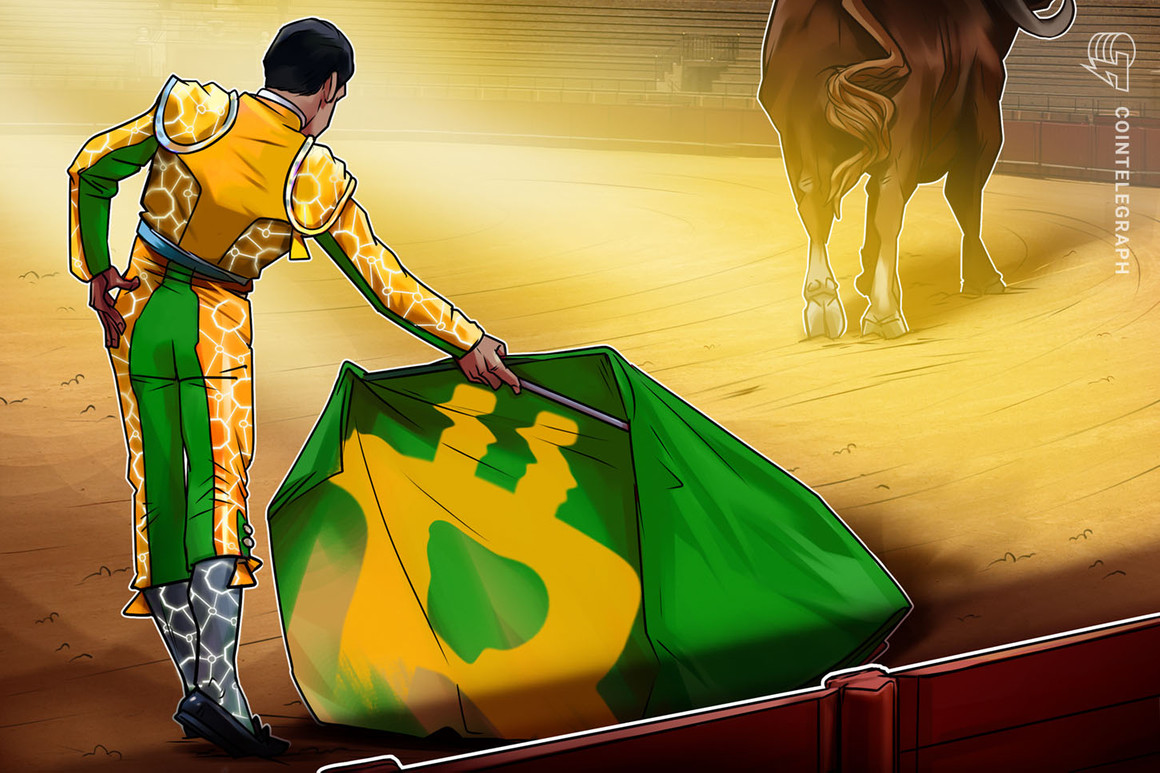#How imperfect game changed much more than the lives of Armando Galarraga, Jim Joyce #SportsNews
“How imperfect game changed much more than the lives of Armando Galarraga, Jim Joyce”
“It is going to be the first line in my obituary.” — Jim Joyce
It is not this simple: Joyce missed a call and the Astros committed baseball sins that rocked the sport.
It is not that kind of straight line. From there to here. A lot happened in between. And MLB was probably on a path toward expanded and elaborate instant replay had Joyce never deprived Armando Galarraga of authoring what at the time would have been the 19th perfect game of the modern era.
Notice that the words “deprived of immortality” were not used there. Because as even Galarraga concedes these days, a decade later, “I am way more famous because of what happened than if I just had gotten the perfect game.”
When the Indians-Tigers game began on June 2, 2010, Joyce was viewed as far more capable at his job than Galarraga.
Annual surveys of players and executives would always rank Joyce near the top of major league umpires. As Johnny Damon, who was the Tigers’ starting left fielder that night said, “Jim was like Joe West — always fair, just people liked Jim.”
Joyce was good at getting the calls right and even-tempered to listen to complaints when his judgment was in question without coming off as authoritarian or infallible. He graced that line that so few umpires find of being in charge of a major league game, but still maintaining civil or better relationships with the players, coaches and managers. If Jim Joyce was doing a game, those involved knew they would receive expertise, fairness and composure.
There was another trait for Joyce. He would provide more than the requisite hand signals, he would offer a loud strike call if he was behind the plate, and if he were on the bases — like first base on June 2, 2010 — you would hear if he thought someone was safe or out on a bang-bang play.
“Jim Joyce was an excellent umpire, very well respected,” said Jim Leyland, the Tigers manager that Wednesday night.
Galarraga was reserved, neither his voice nor fastball exploded. He had finished fourth in the AL Rookie of the Year voting in 2008, had the third worst ERA (5.64) for anyone allowed to throw at least 140 innings in 2009 and began 2010 as a Toledo Mud Hen in the International League. He was making just his fourth appearance of 2010 for the Tigers on June 2, trying to show he was more than the kind of pitcher who yo-yos between the majors and minors, more than a long reliever.
At that point, he had appeared in 65 major league games, started 56 and had a 4.62 ERA.
“I had a rotation with [Max] Scherzer and [Justin] Verlander,” Leyland said. “Galarraga was one of the last guys you’d expect to pitch a perfect game.”
But on June 2, 2010, Galarraga felt the magic in his hand from the outset. He was not a question mark with a 4.62 ERA, he was an artist who could do whatever he wanted with his fastball, sinker and slider.
Galarraga knew he had a perfect game going by the noise. First it stopped. Normally, when he pitched his fellow Venezuelans on the Tigers would be constantly advising and encouraging him in the dugout. But as the game against the Indians progressed, first baseman Miguel Cabrera, second baseman Carlos Guillen and DH Magglio Ordonez followed the protocols of the game — don’t jinx it by talking to the pitcher — and turned off the chatter.
But their silence was mitigated by the 17,738 at Comerica who began to stand and cheer by the middle innings when Galarraga hit the dugout top step to return to the mound. Perfection seemed as possible as ever, since even perfection was not rare in 2010.
On May 9, Oakland’s Dallas Braden had pitched the 17th perfect game of the modern era with Jim Joyce umpiring at second and on May 29 Philadelphia’s Roy Halladay threw the 18th. Joyce, who had pitched at Bowling Green himself and loved the art, recognized how easily Galarraga was navigating the game.
“I noticed what was going on by the third inning,” Joyce said.
Galarraga had just three strikeouts, but had needed just 75 pitches through the top of the eighth. But Detroit led just 1-0 as Cleveland’s Fausto Carmona — soon to go by his real name, Roberto Hernandez — was taming the Tigers too before consecutive two-out singles by Austin Jackson, Damon and Ordonez led to two runs in the bottom of the eighth. So Galaragga took the mound in the ninth with a 3-0 cushion, a standing ovation and TVs clicking on all over.
“I had turned over about two, three innings earlier, so yes, unfortunately I was watching,” said then commissioner Bud Selig.
Mark Grudzielanek hit the first pitch of the top of the ninth deep to left-center. Jackson was playing shallow — Andruw Jones shallow — in center. But he got a superb read, sprinted 100 feet, perhaps more and as Jackson reached the lip of the warning track he made like Jerry Rice — back to the infield — hauling in the ball over his left shoulder with a basket catch.
The crowd and Tigers dugout broke out in euphoria. Galarraga smiled, nothing more as far as emotion. “It just made me relax,” Galarraga remembers. “It really loosened the tension. I was nervous to try to get it over, to try to get something special. That just loosened me up.”
Perhaps for the first time all night — one out now recorded in the ninth — Galarraga thought all the good mojo was on his side. He was going to get this thing.
Mike Redmond grounded to short, leaving Jason Donald between Galarraga and perfection. But it wouldn’t be Donald who broke up the perfect game.
Galarraga knew he wanted to get to his slider as the out pitch against Donald and threw the breaking ball at 1-1. Donald, a righty, squirted a ball perhaps 40 feet wide of first. Cabrera aggressively went to his right to field, made an overhand throw that Galarraga caught waist-high and the pitcher took a quick glance down as he touched the bag to register that the deal was done.
Joyce was in an ideal position — 10 or so feet beyond the bag, just off the line, no obstruction, head still and focused on the intersection of Galarraga’s foot touching and Donald coming down the line. If you super slo-mo it, it does appear that Joyce is beginning a move to punch out Donald. And to this day Leyland claims that was what the ump was trying to do.
“I think Jim Joyce, he saw out and signaled safe,” Leyland said. “For whatever reason, he knew he was out. I don’t know if he was anticipating not out. That is what I have always believed.”
Cabrera windmilled his right arm in joy and Galarraga was just raising his arms in celebration when Joyce with wide hands and that booming voice signaled and screamed “safe.” Cabrera yelled, “no.” Even Donald put his hands to his head in disbelief. Tigers players on the field and in the dugout bellowed, cursed, protested. Galarraga, as after the Jackson play, just smiled, stared into the distance.
“To this day, honest to God, I don’t know how it happened,” Joyce said. “I was getting ready to call out, and something happened and I came up safe. I can’t give you an answer on that. I just had safe. That is what came out.”
Leyland emerged to protest, but not with much gusto and not for very long. But by now both dugouts and most in the crowd had what Joyce did not: a replay. And there was no doubt. Donald was out by a step. Yet, he was standing on first base and on the scoreboard the Indians now had a hit.
Galarraga returned to the mound to face Trevor Crowe, the tying run now on deck. Yet, he was unfocused. He has no clear recall of the sequence to Crowe that would end with a groundout to third. Galarraga’s memory is only of how relentless Cabrera was at going after Joyce during the whole at-bat.
“I heard every word,” he said.
So did Joyce. He forgave it. He heard the other players, the crowd. He had known Leyland a long time, had a strong relationship with him and when Leyland came out to scream some more after the game, Joyce did not need to see an instant replay.
He knew.
He asked his crew chief, Derryl Cousins, nevertheless and, yes, Cousins told him Donald was safe. Joyce watched the tape, too. One time.
Joyce retreated to this locker in the umpire’s room and chain smoked. But what happened from there in two locker rooms changed the narrative.
In the home clubhouse, Galarraga took a phone call from his father, Jose, who said despite the one hit on the ledger, “You threw a perfect game in the big leagues. He was so proud of me. That made me really happy.”
Then Tigers GM Dave Dombrowski told Galarraga that Joyce was troubled and recommended going to talk to the umpire.
“He was struggling at that point,” Galarraga recalls. “He was crying, saying ‘I am sorry, I thought he was safe. I made a big mistake. I took away a perfect game from you.’ He was red like a tomato. I felt bad for him.”
“To this day, honest to God, I don’t know how it happened. I was getting ready to call out, and something happened and I came up safe.”
– Jim Joyce
Galarraga returned to the locker, met reporters and magnanimously said, “Nobody’s perfect” and talked about how proud he was to pitch so well and that he had no animosity toward Joyce.
In the umpire’s locker room, Joyce said Cousins first suggested that Cousins would meet reporters and spare Joyce, then that Joyce should just face a pool reporter. Joyce rejected both ideas. Said bring all the reporters in, let them ask whatever they want for as long as they wanted.
Joyce owned the moment. No obfuscation. No excuses. No hiding. He blew the call. He had no clear reason why. He cost Galarraga a perfect game. He faced the biggest call of his career and missed it. Joyce voiced all of this with tears in his eyes and a frog in his voice.
When it was all done, Cousins told Joyce he had fielded a call from the Commissioners Office and that Joyce did not have to take his spot on the field tomorrow. Joyce said no. There was a matinee to be legislated and — of all things — Joyce had home plate.
“I was the most hated man in the world for 10 hours,” Joyce said of what followed.
He was in misery. He would return to his childhood home in Toledo, Ohio — the city where Galarraga pitched to begin the year — where his mother still resided. This was his routine when he worked in Detroit. It allowed Joyce to see his mother, more important now with his father having passed away.
He didn’t sleep, spending most of the night on the phone with his wife, Kay. The play was on endless loop everywhere, the conversation du jour, sparking the strongest round ever that MLB needed to follow the other three major sports and increase replay review. Selig was being pressured to reverse the call and award Galarraga a perfect game.
Galarraga returned to the stadium the next day ready for his heavy day-after pitching cardio workout — 45 minutes on the field, then running the stairs in the stands. But Leyland told Galarraga if he went out he would get no work done and would be besieged by reporters. That was true. Leyland also wanted to hide that Galarraga was being awarded a Corvette as if he had thrown the perfect game. Plus, Leyland had come up with one other thought.
“It was a great idea,” Galarraga offers now.
When Joyce emerged, he already was fighting to restrain a full sob. There was some booing, but then cheers as Leyland’s plan went into motion, Galarraga came with the lineup card. Joyce was now in tears. The two shook hands. No words exchanged. At the end, Galarraga gave Joyce a fraternal tap on the shoulder, Joyce put a full hand slap of appreciation on Galaragga’s chest. The pitcher returned to the dugout. Standing ovation.
“I had no idea it was coming,” Joyce said. “Jim always came out with the lineup. I broke down when I saw [Galarraga] on the top step. Peripherally, I was looking over there, waiting to see what happens with me and Leyland today. I see Armando on the top step. I broke down. I didn’t see the lineup card. They could have put Babe Ruth in the third spot. I had no idea what it said. I couldn’t speak.”
The two were bonded forever now. Their sportsmanship, grace and humanity changed the tone of the coverage. In 2011, Joyce, Galarraga, and author Daniel Paisner collaborated on a book, “Nobody’s Perfect: Two Men, One Call, and a Game for Baseball History.” As a result of that mutual financial arrangement, Joyce was forbidden from working any game in which Galarraga was to play.
But that was not the biggest outcome of this event.
“Absolutely,” Joyce says now.
The question is if that call was the slippery slope that led to the fully expanded replay in 2014.
Selig had always been against going too far with replay, concerned that it would further slow play. In 2008, MLB became the last of the four major sports leagues to implement replay review and in this case just disputes about homers and initiated by umpires.
But the day after the Joyce/Galarraga call, Selig issued a statement that stated: “Given last night’s call and other recent events, I will examine our umpiring system, the expanded use of instant replay and all other related features.”
In 2009, Selig had formed a 14-person special committee for on-field matters, including what to do with replay. After the Galarraga play, Selig remembers, ”I was surprised how aggressive the four managers [on the committee] were,” citing Tony La Russa specifically among Leyland, Mike Scioscia and Joe Torre.
At the January 2011 umpire meetings, Joyce remembers Selig stopping by and Galarraga was part of his presentation to the membership as replay was discussed. A July 2011 wrong call by umpire Jerry Meals at home plate to end a 19-inning game added to the momentum toward replay. By August 2013 MLB was comfortable with the technology and announced that it would greatly expand replay for 2014, putting the right to challenge into the team’s hands. That led to the multi-monitor system that in unintended consequences showed organizations they could watch the opposing catcher and his signals all game, which launched the Astros toward the illegal use of the cameras to steal signs in real time.
It was probably inevitable that MLB would get to replay, but when Selig is asked what kind of stimulus the Galarraga play was to move him from firmly against the concept to initiating a process that led to the system, he said, “Did it push us toward instant replay? I would say it was a factor along with many other things.”
Joyce is more certain. He remembers Selig’s January 2011 presentation, hearing his name and sensing the trajectory.
“I said at that time, after the meeting, replay was going to be instituted because I was the poster boy. I said this will never happen to someone again,” Joyce said.
Joyce, a major league umpire since 1987, retired after the 2016 season. He lives outside Beaverton, Ore., with Kay. In the hallway outside the family room, Joyce has a framed picture from the Chicago Tribune of him and Galarraga at home plate the day after the worst night of his career. It is his daily reminder.
“It is part of my life,” Joyce said. “I am joined at the hip with it.” A brilliant career whittled down to a time he got it wrong. Joyce calls it “my legacy.”
Galarraga had poor seasons in 2011 and ’12, never made it out of the minors in 2013, played in Taiwan in 2014 and Mexico in 2015 and was done, his elbow shot. He resides in Austin, Texas, now, still has the Corvette and runs the Galarraga Baseball Academy. He oversees pitching development programs for students from 8 to 24. But he does more than that. He uses the moment that defines his major league career to tell those he tutors how important it is to remain in control even at the worst times on the field.
“I feel good,” Galarraga said. “We changed baseball. What happened to me, doesn’t happen now because of replay. I actually helped because of what happened to me in the past. Of course, I wanted my perfect game. I would love to have the stuff in Cooperstown that says I have a perfect game, but I am happy how we handled it. We are human beings. We had a good story for all people watching and how kids can control emotions when things don’t go your way.
“You know what, it is a great story.”
If you want to read more Sports News articles, you can visit our General category.
if you want to watch Movies or Tv Shows go to Dizi.BuradaBiliyorum.Com for forums sites go to Forum.BuradaBiliyorum.Com




